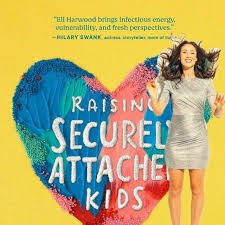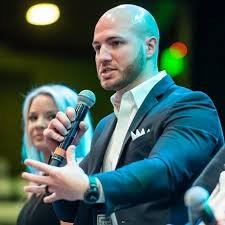
Mental Health Resources in Cincinnati
Hotlines
National Suicide Prevention Line
Call or text 9-8-8
Operates 24/7
Local Crisis Line
513-281-CARE (2273)
Operates 24/7, Cincinnati-based
Local Warm Line
513-621-WARM (9276)
Before crisis hits, call if you need someone to talk to.
United Way Help Line
2-1-1
Resources about self help groups, housing, utilities, and more.
Substance Abuse Help Line
800-262-2463
Domestic Violence Hotline
800-799-7233
Addiction Resources in Cincinnati
Start Your Recovery
www.startyourrecovery.org
Addiction and Depression
Article from Boca Recovery Center
Beyond Your Valley Counseling
www.beyondyourvalley.com
Blue Ash
The Ridge Recovery Center - Milford
Website
Moral Revolution - Resources for pornography addiction
Moral Revolution
Directory of Local Treatment Centers
Full Directory
Aware Recovery - In home addiction treatment
Aware Recovery
Adolescent Resources in Cincinnati
24/7 Psychiatric Intake Number - Cincinnati Children’s
513-636-4124
TheHopeLine - Faith-based help for teenagers in crisis
TheHopeLine
NAMI - National Alliance on Mental Illness
Resources for adolescents
Apps We Recommend
The School of Life
Provides books, videos, and online classes that help develop emotional intelligence and self-awareness.
The Gottman Institute
Offers articles and resources on managing emotions in relationships and effective communication.
Intelligent Change
The Five Minute Journal: A guided journal designed to encourage gratitude and reflection, promoting a positive mindset.
Moodgym
An interactive program designed to help with managing depression, anxiety, and stress.
Coping Skills
Grief.com
Founded by David Kessler, a renowned grief expert, this site offers free articles, books, and online support groups for coping with grief.
Provides practical guidance for dealing with grief, including coping tools, a blog, podcasts, and online courses.
A Cincinnati-based nonprofit providing grief support for children, teens, adults, and families through peer support groups, individual counseling, and workshops.
Grief Support
FoundationsWellnessCare.com
Holistic Practitioners specializing in Lyme disease, autoimmune disease, chronic illness, & mystery illness.
AimForWellbeing.com
Integrative and Functional Medicine.
Chiropractic Care. Advanced Allergy Therapeutics. Nutrition Counseling. Medical Message. Rolfing. Energy Healing.
Holistic Medical Providers
Inpatient Programs in Cincinnati
Lindner Center of HOPE
www.lindnercenterofhope.org
Mason
Beckett Springs
www.beckettsprings.com
West Chester
Glenwood Behavioral Health
www.glenwoodbehavioral.com
White Oak
Medication Management in Cincinnati
Nico Misleh, APRN, FNP-BC
Apollo Health Optimization
Crossroad Health Center
Website
Corey Lozier, PMHNP-BC
Lozier Health
Taylor Schroeder, APRN, PMHNP-BC, RYT
Earthside Health and Wellness
News
A study conducted by the American Psychological Association (APA) in 2017 found that more than half of Americans (56%) reported that following the news caused them stress, and many reported feelings of anxiety and fatigue. The Pour Over is a great alternative for people that want to reduce their news consumption, but stay up to date on current events. They add refreshing and brief Christian perspectives to every story.
Relational Peace
Courses and Groups
RelationalPeace.org
AI Chatbot for Domestic abuse
Aimee Says
Relationships
Senior Citizens in Cincinnati
Legacy Psychological Services
North College Hill
Website
Crisis Guide for Caregivers
View the Guide
Loneliness and Isolation
View resources for seniors feeling isolated
Social Media Accounts we Recommend
The Holistic Psychologist
Hesed Place - Complex Trauma
The Attachment Nerd:
Attachment Theory
ManTalks
Mason Cain - Sex/Pornography addiction
Social Skills
The Social Express
An interactive learning app that helps children develop social skills through scenarios, role-play, and engaging games.
Social Thinking
Provides resources, books, and curricula designed to help children, teens, and young adults develop social-emotional skills..
Social Skills Group Counseling for Kids and Teens
Autism Cincy
Provides resources, books, and curricula designed to help children, teens, and young adults develop social-emotional skills..
Support Groups
Men’s Healthy Sexuality
Weekly, open-group meetings for men struggling with sex/porn addiction.
Women’s C-PTSD Group
For adult women struggling with PTSD, stemming from childhood.
Students and Teens
Intelligent.com
Free resources and information to empower individuals in their academic and personal journeys
Treatment Centers
Eating Recovery Center of Ohio
Secrest Recovery Center:
Addiction/Substance abuse
Hotel California by the Sea:
Individualized detox, residential and outpatient addiction treatment program
Anxiety - An emotion characterized by feelings of tension, worried thoughts, and physical changes like increased blood pressure.
Antisocial personality disorder - A mental health disorder characterized by a disregard for the rights and feelings of others.
Attention-deficit/hyperactivity disorder (ADHD) - A neurodevelopmental disorder that affects attention and self-control.
Autism spectrum disorder (ASD) - A neurodevelopmental disorder characterized by difficulties with social interaction, communication, and repetitive behaviors.
Bipolar disorder - A mental health disorder characterized by extreme mood swings that include emotional highs (mania or hypomania) and lows (depression).
Bipolar I disorder - A subtype of bipolar disorder characterized by at least one manic episode.
Bipolar II disorder - A subtype of bipolar disorder characterized by at least one hypomanic episode and at least one depressive episode.
Borderline personality disorder (BPD) - A mental health disorder characterized by unstable mood, behavior, and relationships.
Cognitive-behavioral therapy (CBT) - A type of talk therapy that focuses on identifying and changing negative patterns of thinking and behavior to improve mental health.
Dementia - A group of symptoms that affect memory, thinking, and social abilities severely enough to interfere with daily functioning.
Depression - A mood disorder evidenced by a persistent feeling of sadness or loss of interest, often coupled with changes in appetite, sleep, and motivation.
Dialectical behavior therapy (DBT) - A form of cognitive-behavioral therapy that focuses on teaching skills to regulate emotions, manage distress, and improve interpersonal relationships.
Eating disorders - A group of mental health disorders characterized by abnormal eating habits that can have serious physical and mental health consequences.
EMDR - Eye Movement Desensitization and Reprocessing, a type of therapy that has been shown to be effective in treating trauma and other mental health conditions. During an EMDR session, the therapist asks the client to recall a traumatic memory or distressing experience while they follow the therapist's hand movements with their eyes, listen to sounds, or feel physical sensations. This process is believed to help the brain reprocess the memory in a way that reduces the emotional charge and associated distress.
Existential therapy - A form of talk therapy that focuses on the human experience of existence, including issues of meaning, purpose, and freedom.
Family systems therapy - A form of talk therapy that focuses on the dynamics and interactions within a family system and seeks to improve communication and relationships.
Generalized anxiety disorder (GAD) - A mental health disorder characterized by excessive worry and anxiety about everyday situations.
Gestalt therapy - A form of talk therapy that focuses on present-moment experience and emphasizes personal responsibility, self-awareness, and the integration of different parts of the self.
Integrative or eclectic therapy - A flexible approach to therapy that draws on different theories and techniques depending on the needs of the client.
Major depressive disorder - A subtype of depression characterized by persistent feelings of sadness and loss of interest in activities.
Manic episode - A distinct period of abnormally elevated or irritable mood, energy, and/or goal-directed activity lasting at least one week, often requiring hospitalization.
Mental Illness - A condition that affects a person's thinking, feeling, behavior, or mood, resulting in distress and impairment in social, work, or other life settings.
Narcissistic personality disorder - A mental health disorder characterized by an inflated sense of self-importance, a lack of empathy, and a need for admiration.
Narrative therapy - A form of talk therapy that focuses on the stories people tell about themselves and their experiences, and seeks to help clients develop more positive and empowering narratives.
Obsessive-compulsive disorder (OCD) - A mental health disorder characterized by unwanted thoughts and repetitive behaviors or rituals.
Panic Attack - A sudden and intense rush of anxiety coupled with physical reactions such as shortness of breath, increased heart rate, sweating, or thoughts of dying or losing control.
Panic disorder - A mental health disorder characterized by sudden and repeated panic attacks.
Person-centered therapy - A form of talk therapy that focuses on the client's experience and perspective and provides an empathetic and non-judgmental environment for personal growth.
Psychodynamic therapy - A form of talk therapy that focuses on unconscious thoughts and feelings and their impact on behavior and relationships.
Psychosis - A mental state characterized by a loss of contact with reality, including delusions and hallucinations.
Post-traumatic stress disorder (PTSD) - A mental health disorder that can develop after experiencing or witnessing a traumatic event.
Schizoaffective disorder - A mental health condition characterized by a combination of schizophrenia symptoms, such as hallucinations or delusions, and mood disorder symptoms, such as depression or mania.
Schizophrenia - A serious mental disorder characterized by a disconnection from reality, delusions, and hallucinations.
Social anxiety disorder - A mental health disorder characterized by intense fear or anxiety in social situations.
Solution-focused brief therapy (SFBT) - A form of talk therapy that focuses on identifying and building on client strengths and developing specific, achievable goals.
Substance use disorder (SUD) - A mental health disorder characterized by a pattern of using a substance (such as drugs or alcohol) despite its harmful consequences.
Trauma - A psychological response to a stressful event or situation that is perceived as threatening or dangerous.
Sources: American Psychological Association, Mayo Clinic, DSM5, National Alliance on Mental Illness, National Institute of Mental Health, American Psychiatric Association, Alzheimer’s Association, National Eating Disorders Association



















